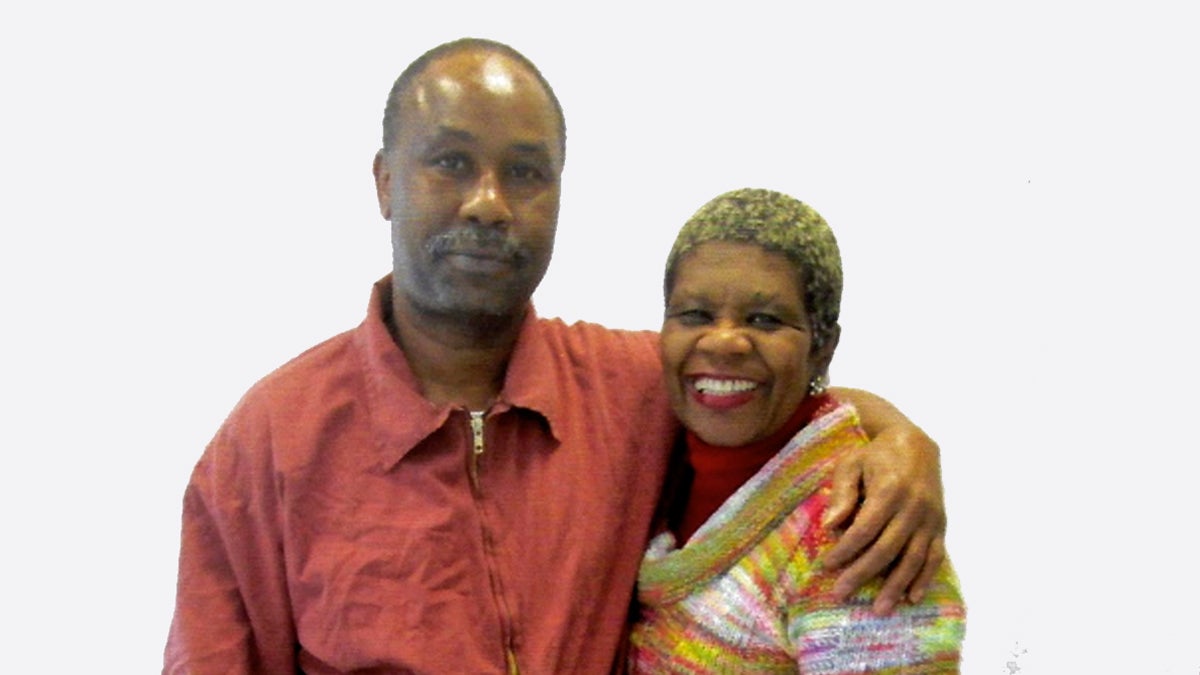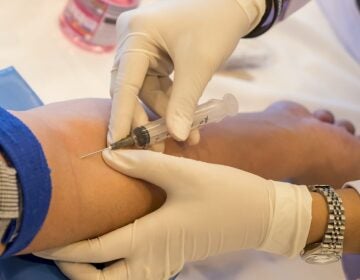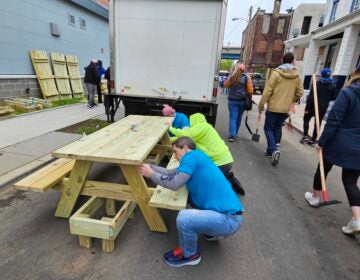After four decades behind bars, Philly man has hope of clearing his name — and being free
Listen
Tyrone Jones poses with his arm around his sister
In May 1973, 16-year-old Tyrone Jones was arrested outside of his house at 23rd and Oxford streets in the Sharswood section of Philadelphia.
It was nine blocks away from a deadly shooting that claimed the life of Henry Harrison, who was 17.
Prosecutors portrayed Harrison as a casualty of turf wars between neighborhood gangs.
Court records show that up to 60 people were present at the scene of the crime when police arrived. One witness told police the shooter was wearing a red skullcap, and authorities used that as probable cause to arrest Jones, who also was sporting a red cap.
Police seized a gun from Jones. But ballistics lab tests demonstrated that the bullets that struck Harrison could not have come from Jones’ weapon.
Still, a jury convicted Jones of first-degree murder, and he was sentenced to life in prison without the possibility of parole — based on his own testimony.
For decades, he’s maintained his innocence and said that police coerced him to give a false confession. He’s now almost 60 years old.
Jones is among the first “juvie lifers” heading toward the Board of Probation and Parole for potential release after U.S. Supreme Court ruled that mandatory life sentences for teens is unconstitutional under the Eighth Amendment’s ban on cruel and unusual punishment.
“Think about this,” said attorney Hayes Hunt, Jones’ pro bono attorney. “You’re talking about an individual who’s probably never locked a door for himself. Who has never driven a car. I mean, Gerald Ford was the president when he went to jail.”
Jones earned in GED in prison, learned electrician skills and displayed model behavior, according to Hunt.
“He’s a 60-year-old man,” he said. “He plays pinochle and goes on power walks.”
In Jones’ situation, Harrison’s family is not opposing his release, but that won’t be the case for all of the 300 or so Philadelphia prisoners whose sentences are now being reconsidered.
Oldest cases to be reviewed first
The city district attorney’s office recently released its seven-step protocol for expediting the juvenile lifer cases. Prosecutors say the oldest cases — 100 of the juvie lifers have been behind bars for more than 30 years — will be the first under consideration.
From there, victims’ families will be contacted and given the opportunity to provide impact statements. Then prosecutors and defense attorneys will come together to formulate new sentencing recommendations. After that, the inmates will move to state’s Board of Probation and Parole, which is a private proceeding.
The District Attorney’s Office is not opposing that Jones be paroled, according to DA Spokesman Cameron Kline.
Hunt, meanwhile, said his client has earned the chance to be one of the first considered for release in Philadelphia under the Supreme Court’s new guidelines.
“He bettered himself despite thinking that he was going to die in prison,” Hunt said. “He’s always had a sense of optimism and joy.”
WHYY is your source for fact-based, in-depth journalism and information. As a nonprofit organization, we rely on financial support from readers like you. Please give today.




